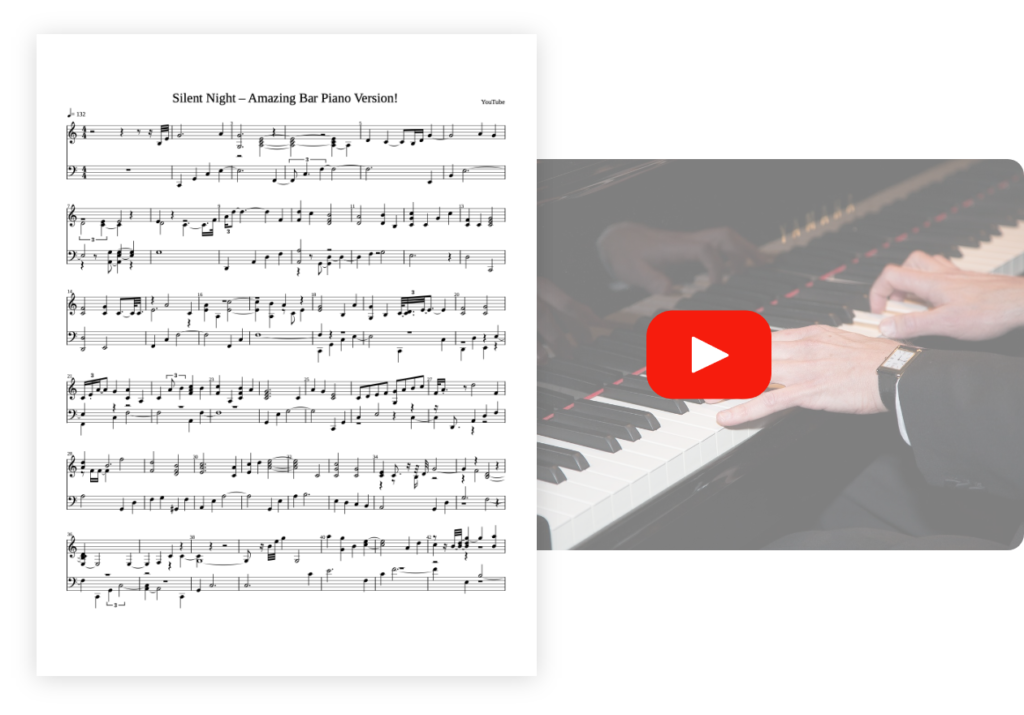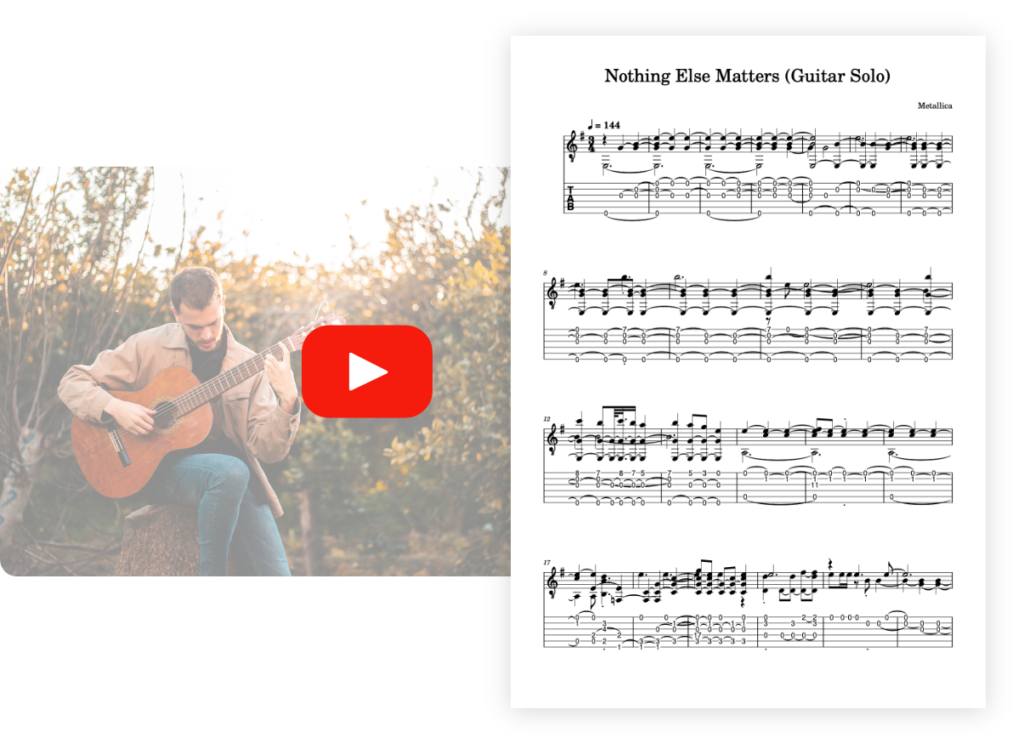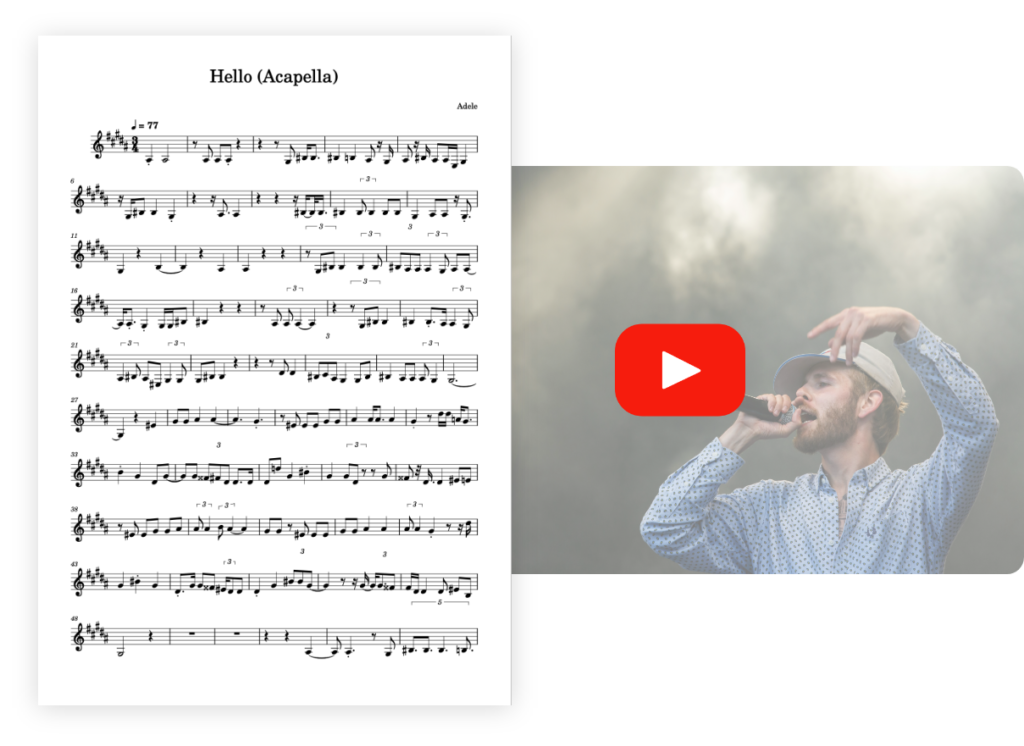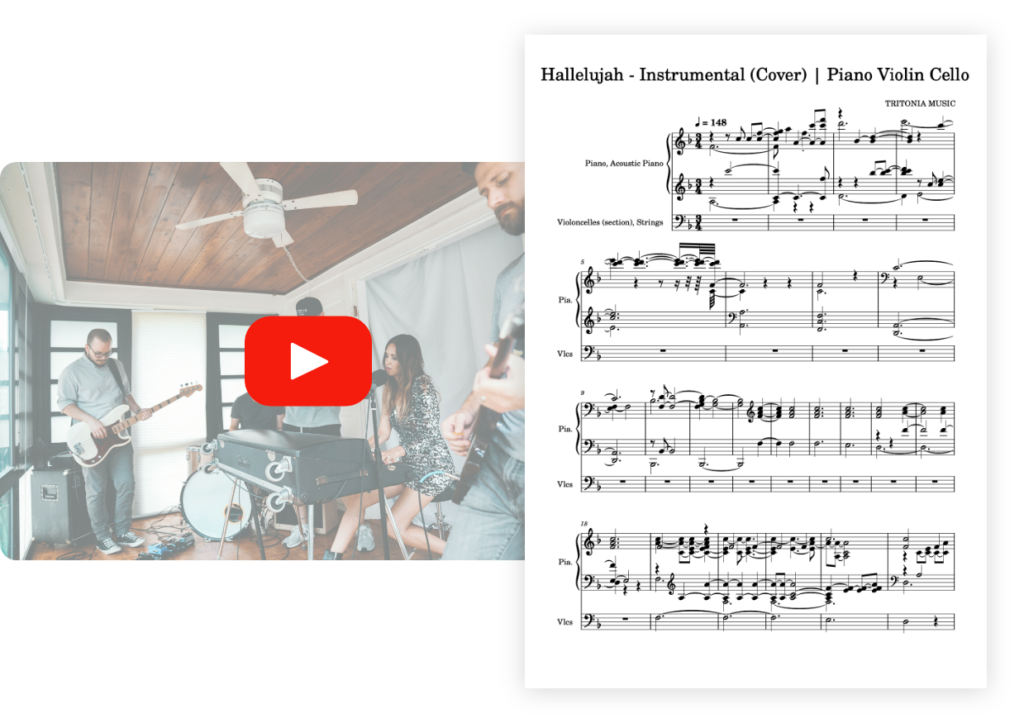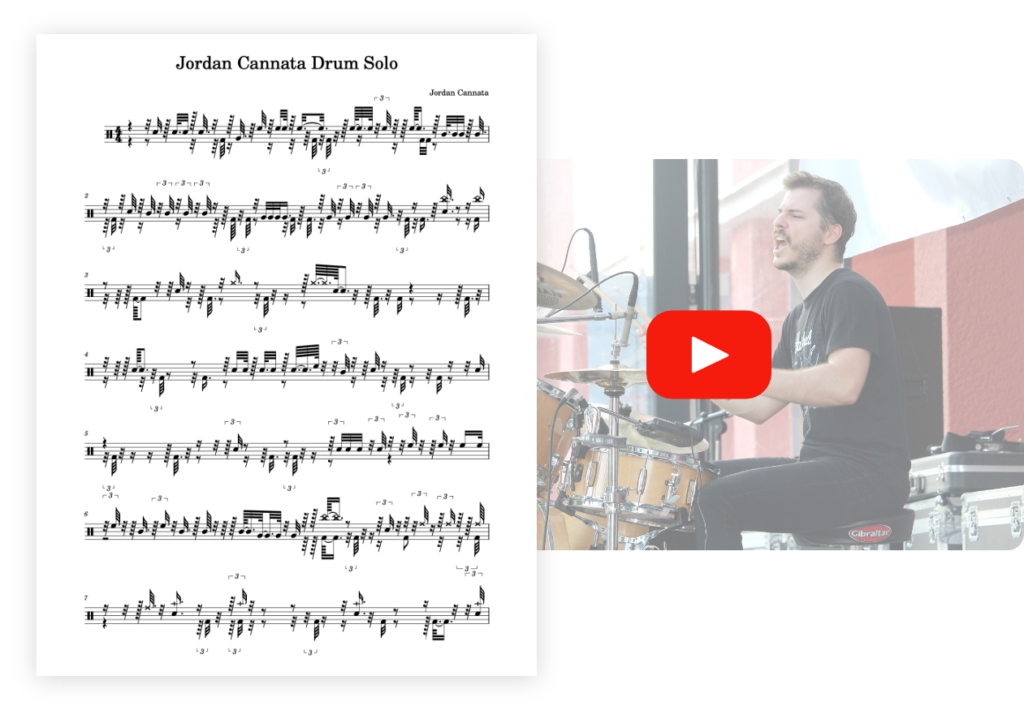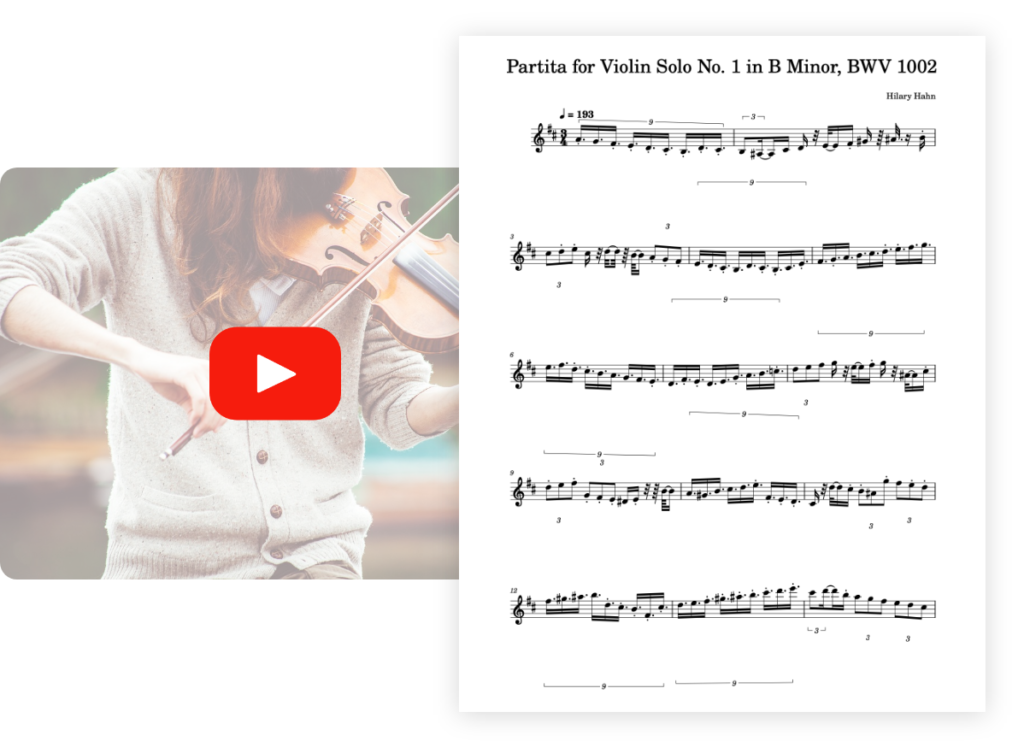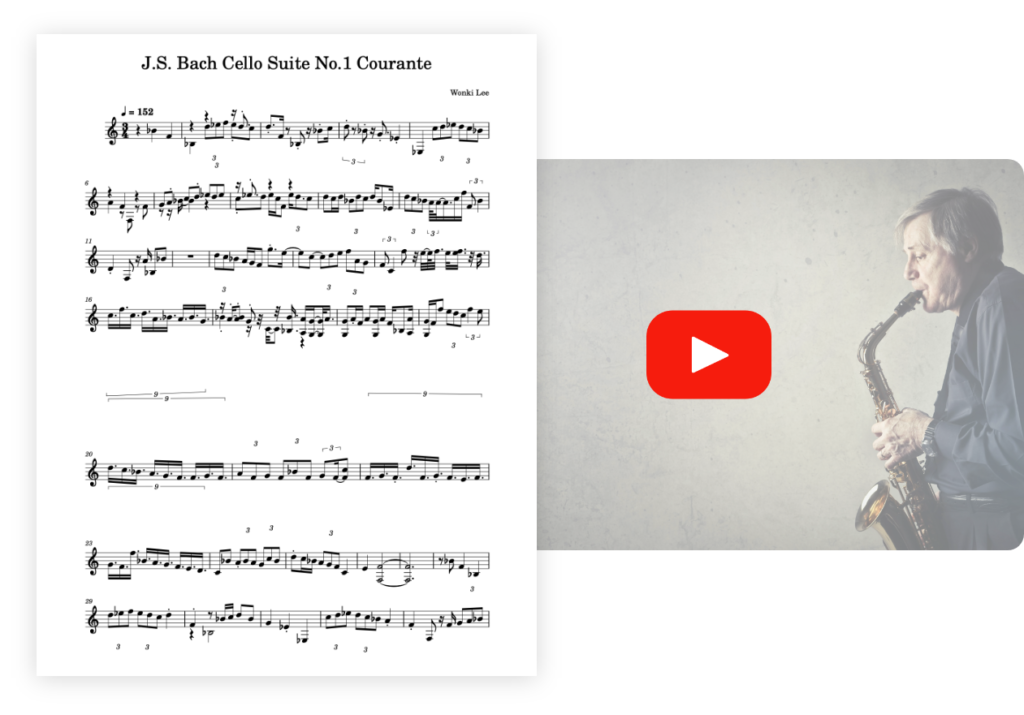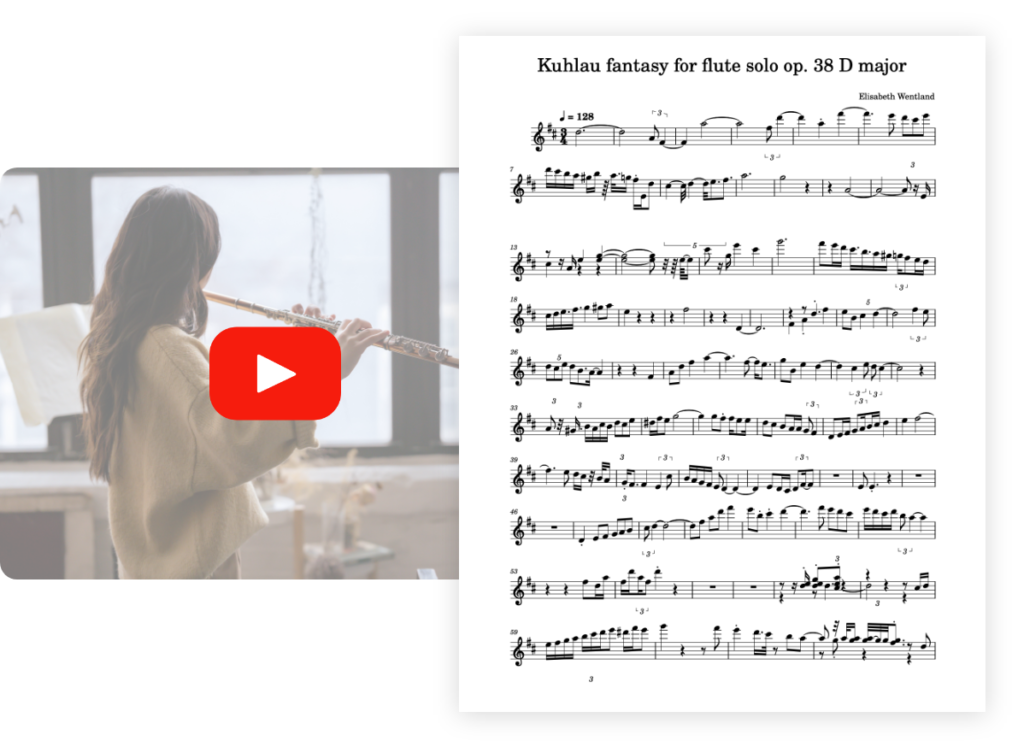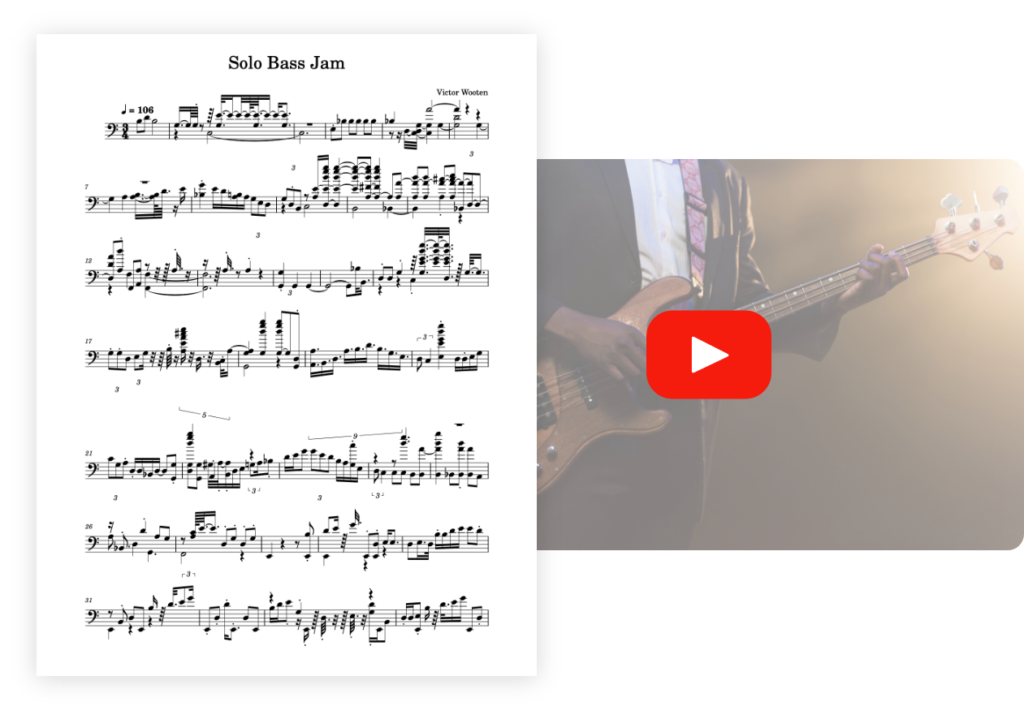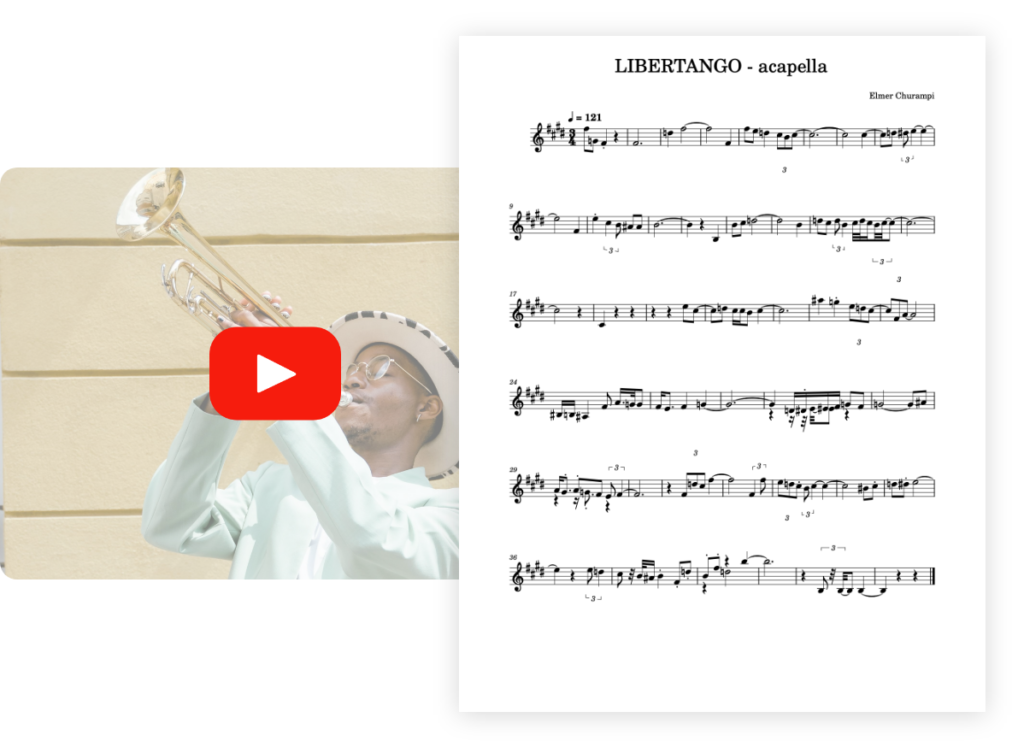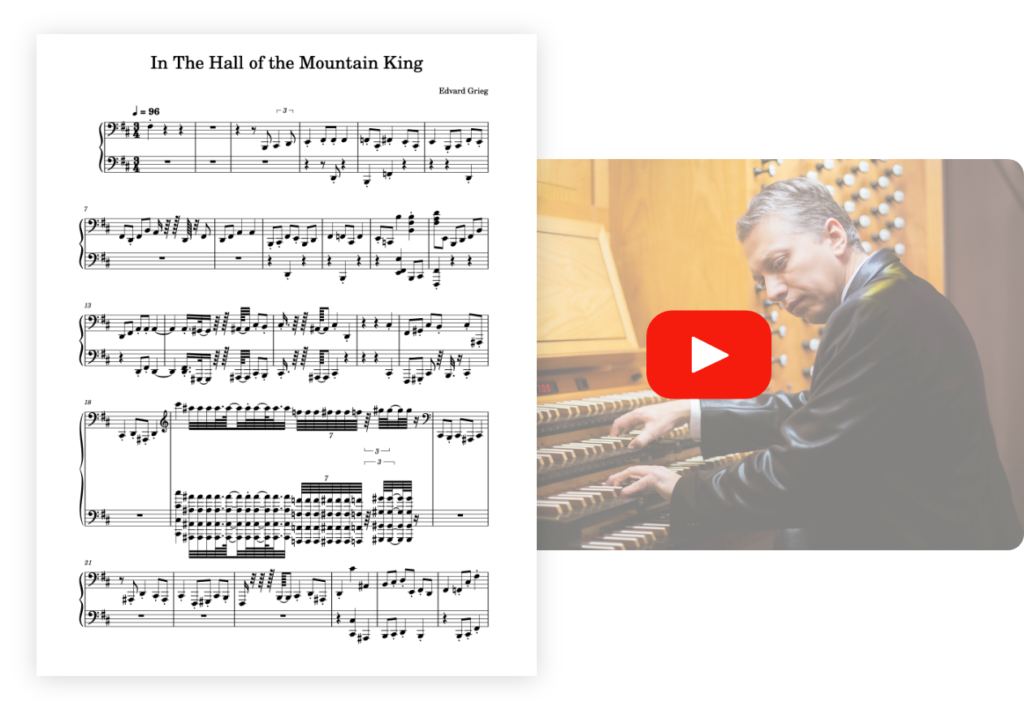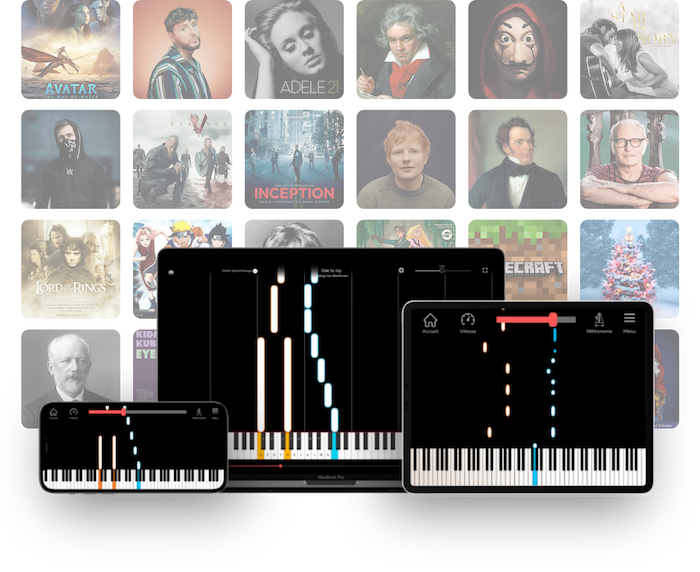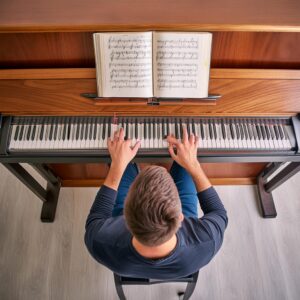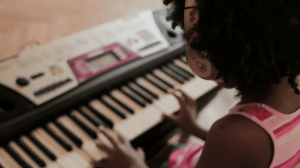Learning the piano is an exciting adventure, but often perceived as a daunting challenge. The difficulty of learning the piano depends on many factors, including your goals, your commitment, the learning method you choose and your ability to maintain regular practice. This article explores these aspects in depth and offers practical advice to make this musical journey more accessible and enjoyable.
Factors influencing your learning
Determine your goals and commitment
How long it takes to learn the piano depends on your goals. If you want to play a few simple songs for fun, a few months of regular practice might be enough. On the other hand, if you dream of becoming a professional pianist capable of playing complex pieces, you’ll need at least 10 to 15 years of intensive lessons, with an experienced teacher and above all on a very regular basis (several lessons a week). Whatever your goal, commitment and regularity will be your best allies. Beginners can master the basics in a few months to a year with assiduous practice, while advanced pianists need to practice for years to continually improve.
Practical tips:
- Clear objectives: Write down your short-, medium- and long-term goals. For example, in the short term, you might aim to learn to play simple songs like “Twinkle Twinkle Little Star.” In the medium term, you might aim to play more complex pieces like Beethoven’s “Für Elise”. In the long term, your goal could be to play sonatas or concertos.
- Time commitment: Allocate a specific amount of time each day or week to piano practice. Keep a calendar or a time management application to track your practice sessions.
- Motivation: Find sources of motivation such as videos of pianists you admire, concerts to attend, or even join forums or discussion groups with other learners
Different learning methods
Learning on your own or with a teacher?
One of the first decisions you have to make is between self-study and lessons with a teacher. Learning on your own is becoming increasingly popular, thanks to numerous online resources such as Udemy, Simply Piano and Pianote.
Another excellent option is La Touche Musicale, an innovative platform that uses an interactive virtual keyboard to teach piano. You can connect your own keyboard to your computer and take real-time lessons, receiving instant feedback to correct mistakes on the spot. The platform also offers an extensive library of songs, allowing you to learn at your own pace in a structured and engaging way.
In addition, adopting user-centric learning strategies can significantly enhance your progress. DesignRush explores this concept in depth in their exclusive interview with La Touche Musicale, where they discuss how AI-driven tools like PianoConvert are revolutionizing music education and making learning more accessible for musicians of all levels.
La Touche Musicale stands out for its playful, interactive approach. You can connect your own keyboard to your computer and take lessons in real time. The platform analyzes your playing and gives you immediate feedback, helping you to correct mistakes on the spot. You can also choose from an extensive library of songs and learn at your own pace. This flexible, accessible method ensures effective progress while making learning fun.
Youtube channels such as Piano Lessons on the Web and Pianote offer structured, progressive lessons for all levels. You can follow a series of videos that teach you step-by-step how to play popular pieces. The videos offer detailed explanations and demonstrations, which can be very beneficial for beginners.
Benefits of self-study :
- Flexibility: Learn at your own pace, according to your schedule.
- Cost: Cheaper than lessons with a teacher.
- Varied resources: Access to a multitude of styles and techniques through a variety of online resources.
However, while self-study is convenient and less costly, it can reach its limits. Lessons with a teacher offer valuable advantages: personalized feedback, correction of bad habits and challenges adapted to your level. For those who really want to make progress, combining online resources with regular lessons with a teacher is often the best solution.
The importance of practice
Regular practice is the key to progress on the piano. Experts recommend playing every day, even for short sessions. To make this more fun and motivating, online tools such as those from La Touche Musicale can be very useful.
For example, if you practice 30 minutes a day, you could reach an intermediate level in 4 to 5 years. With just 15 minutes a day, it might take a little longer. The important thing is to stay consistent and have fun playing!
Tips :
- Practice routine: Establish a daily practice routine. For example, start with warm-ups (scales, arpeggios) for 10 minutes, then work on new pieces for 10 minutes, and finish by reviewing previously learned pieces for 10 minutes.
- Metronome: Use a metronome to work on rhythm and precision. Start slowly and gradually increase the speed.
- Recording: Record your practice sessions to track your progress and identify areas for improvement.
The different stages in learning to play the piano
Beginner stage (0-12 months)
In the beginner stage, you concentrate on the basics of piano playing: finger placement, note reading and the fundamentals of music theory. You can quickly learn to play simple melodies and two-note chords. Songs like “Hot Cross Buns” or “Amazing Grace” are perfect for this phase. With regular practice, about 30 minutes a day, your progress will be rapid. Developing good habits early on is essential, as it will make learning more advanced techniques much easier in the future.
Learn simple songs like Beethoven’s “Ode to Joy”, which will help you become familiar with basic finger movements.
Tips:
- Position: Make sure your posture is correct. Sit up straight, keep your fingers curved and relaxed.
- Reading notes: Use memory cards or apps to practice note reading.
- Patience: Be patient with yourself. Initial progress may seem slow, but every little victory counts.
Intermediate stage (1-3 years)
At this stage, you build on the foundations you acquired as a beginner. You develop your technical skills, enabling you to play more complex pieces such as Beethoven’s “Für Elise” or Yiruma’s “River Flows In You”. According to a Pianote survey, 41% of intermediate pianists have been playing for 1 to 3 years, while 33.5% have between 4 and 10 years’ practice. Patience and perseverance are crucial here, as progress can seem slower. Daily practice of 45 to 90 minutes is common for this level.
Practice playing pieces like Debussy’s “Clair de Lune” to improve your technique and interpretation.
Tips :
- Advanced techniques: Work on specific techniques like legato, staccato, and dynamics.
- Varied repertoire: Diversify your repertoire to include different styles and periods.
- Performance: Practice playing in front of others to develop your confidence.
Advanced stage (ages 3-10)
The advanced stage is marked by mastery of more complex pieces and refined musical expression. You’ll be able to play pieces like Beethoven’s “Moonlight Sonata” or C.P.E. Bach’s “Solfeggietto”. At this level, practice focuses on refining technique and emotional interpretation of the pieces. According to Pianote data, advanced pianists continue to practice daily, often between 1.5 and 3 hours per session. Reaching this level requires years of dedicated practice and in-depth study with an experienced teacher.
To develop your and control your technique, we recommend working on works like “La Campanella”.
Tips :
- Musical analysis: Analyze the pieces you play to understand their structure and how they should be interpreted.
- Masterclasses: Take part in masterclasses to get feedback from professional pianists.
- Analysis of pro pianists: Listen to recordings of famous pianists to get inspiration and improve your interpretation.
Expert stage (10+ years)
Expert pianists are generally professionals who practice intensively every day. They can perform extremely complex and technically demanding pieces such as Rachmaninov’s Piano Concerto No. 3. Experts continue to refine their technique and sometimes develop new playing styles. According to Pianote, 70% of expert pianists have been playing for over 20 years. Practice at this stage is very intensive, often 5 to 8 hours a day, and focuses on achieving technical and artistic perfection.
At this level, it is no longer necessary to recommend certain works for practice. On the other hand, studying Chopin concertos or Prokofiev sonatas to enrich your repertoire of piano classics is an excellent initiative.
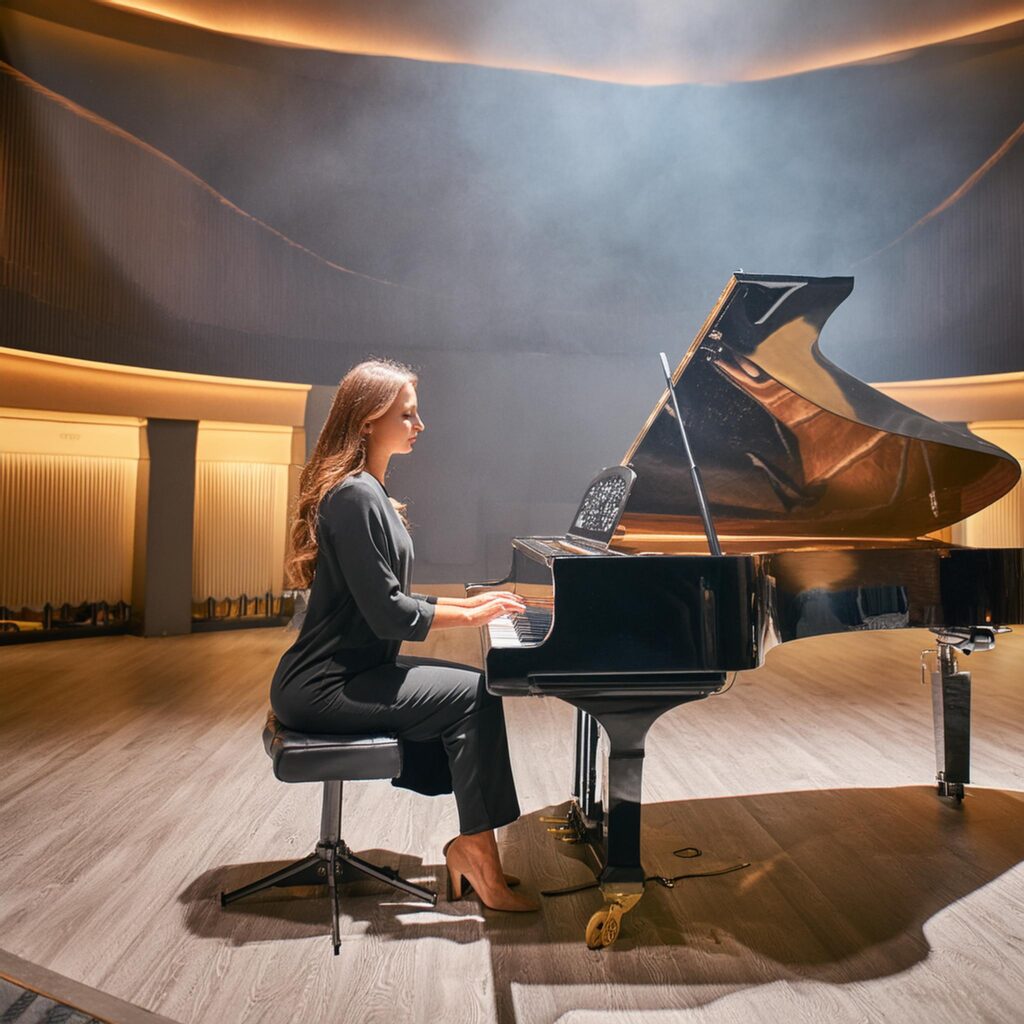
Tips for effective learning
Regular Practice
To make progress on the piano, nothing beats regular practice. It’s better to play a little every day than long sessions now and then. Even 15-45 minute sessions can be very effective if they are well concentrated. Break down pieces into smaller sections and practice slowly to improve your accuracy. Tools like those offered by La Touche Musicale can help you plan and monitor your progress in a fun and interactive way.
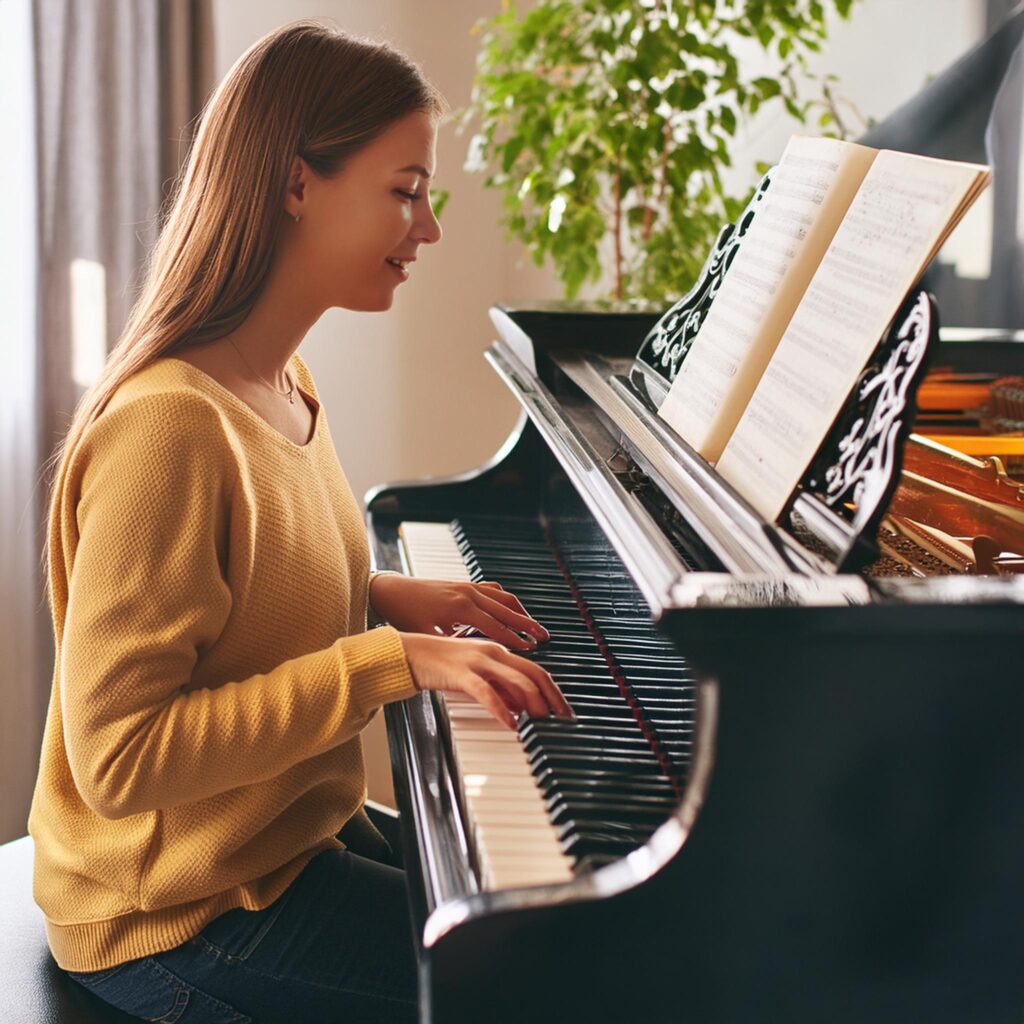
Music tip: Use a metronome to help you maintain a steady tempo and develop your sense of rhythm.
Practice routine: Establish a daily practice routine. For example, start with warm-ups (scales, arpeggios) for 10 minutes, then work on new pieces for 10 minutes, and finish by reviewing previously learned pieces for 10 minutes.
Find the right piano teacher
A good piano teacher can transform your learning experience. It’s crucial to find someone who matches your learning style and musical goals. A qualified teacher can offer personalized advice, correct bad habits and provide ongoing motivation. If your budget is limited, online lessons, such as those offered by La Touche Musicale, can be an excellent alternative. Combining online lessons with regular sessions with a teacher can really maximize your progress.
- Research: Research local or online teachers, read reviews and ask for recommendations.
- Interviews: Interview several potential teachers to find the one who best suits your needs and style.
- Flexibility: Choose a teacher who can adapt to your schedule and specific goals.
Listening to and Analyzing the Music Around You
Actively listening to music and analyzing the pieces you want to learn can greatly improve your understanding and interpretation.
- Active listening: Listen carefully to professional recordings and try to imitate nuances and dynamics.
- Scores: Follow the scores while listening to the music to better understand structure and interpretation.
- Analyses: Read musical analyses or reviews to deepen your understanding of the pieces.
Enjoy the Learning Journey
Learn to see learning the piano as an enjoyable journey rather than a race. Every step of the way is an opportunity for musical discovery and enjoyment. Don’t be discouraged by challenges or slow progress. Perseverance and patience are essential for any musician. Appreciate every little victory and remember that even the greatest pianists started out as beginners. The important thing is to keep playing and enjoying the music.
Keep a practice journal to record your progress, challenges and goals. This will help you stay motivated and see how your learning is progressing.
- Practice diaries: Keep a diary to document your practice sessions, progress and future goals.
- Short-term goals: Set yourself short-term goals and celebrate even the smallest successes.
- Perseverance: Remember that learning is a continuous process and that every step is important.
Conclusion
In short, the time it takes to learn the piano depends on many factors.
Whether you want to play a few simple songs or become a professional pianist, each stage of your learning is a valuable part of your musical journey. Start today, stay patient and persistent, and enjoy every moment you spend playing the piano. With time and commitment, you can achieve your goals and, who knows, maybe become the next great virtuoso of your generation.
Don’t compare yourself to others. Everyone progresses at their own pace. Focus on your own progress and celebrate each milestone you reach. Keep learning, practicing and growing musically.




 PianoConvert
PianoConvert
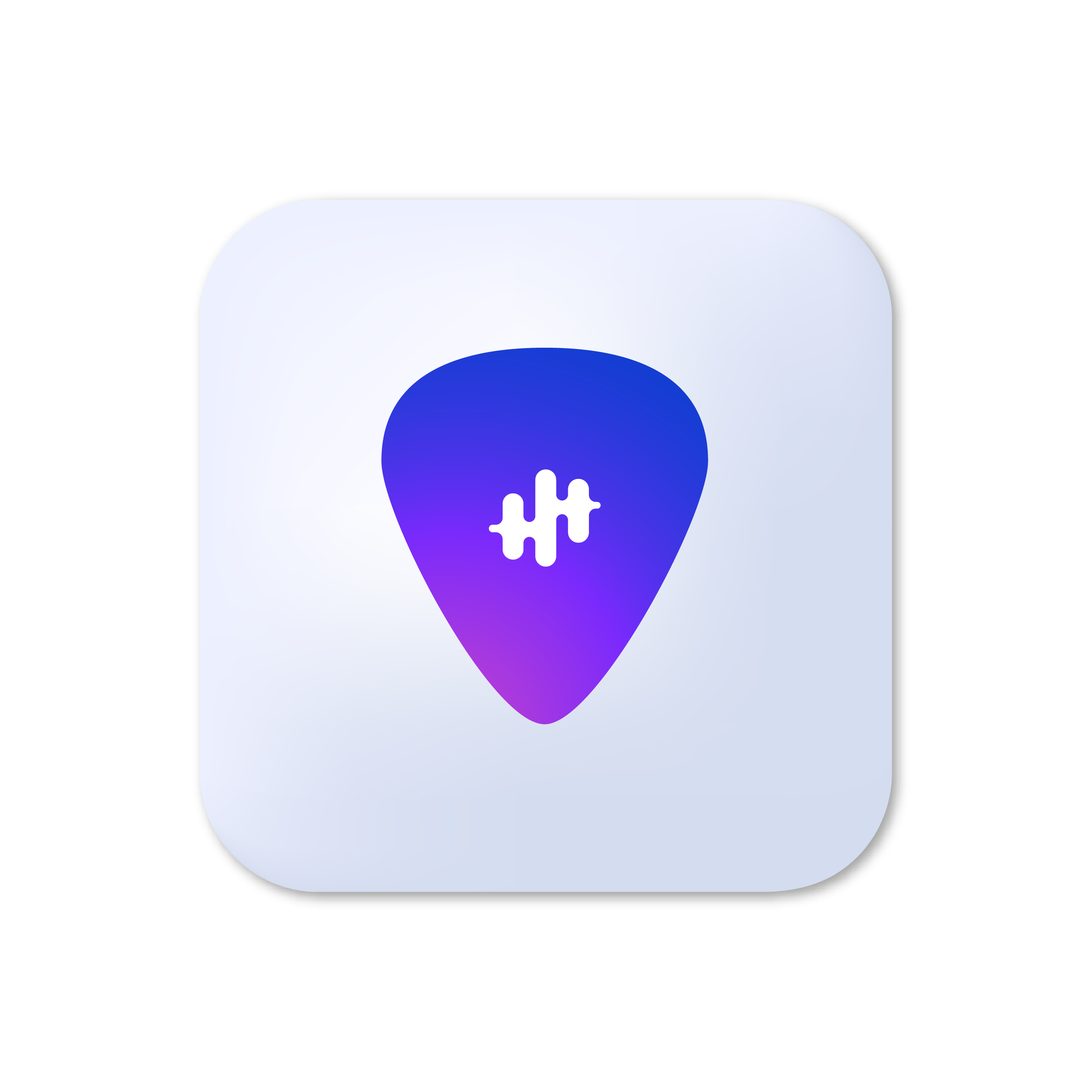 GuitarConvert
GuitarConvert
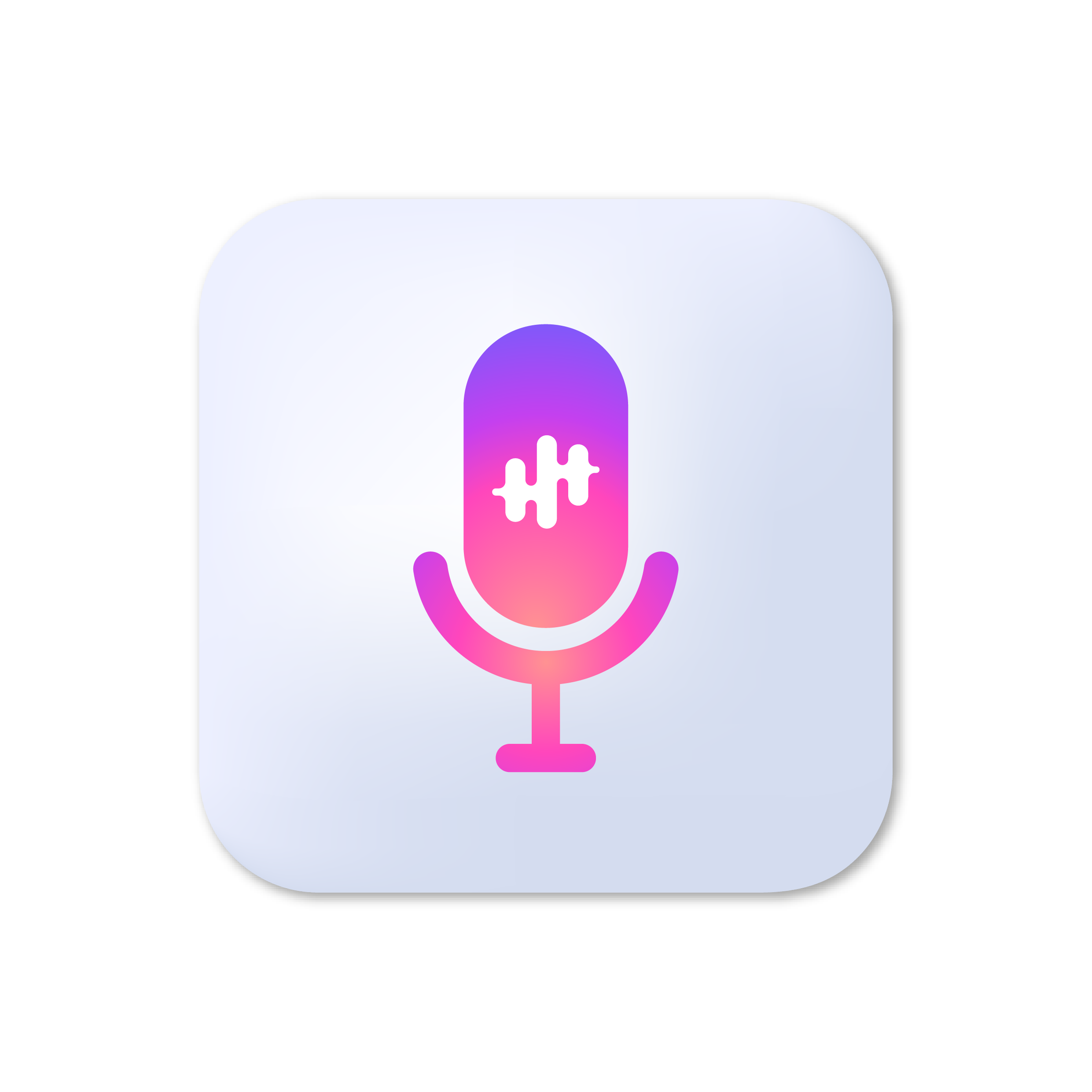 SingConvert
SingConvert
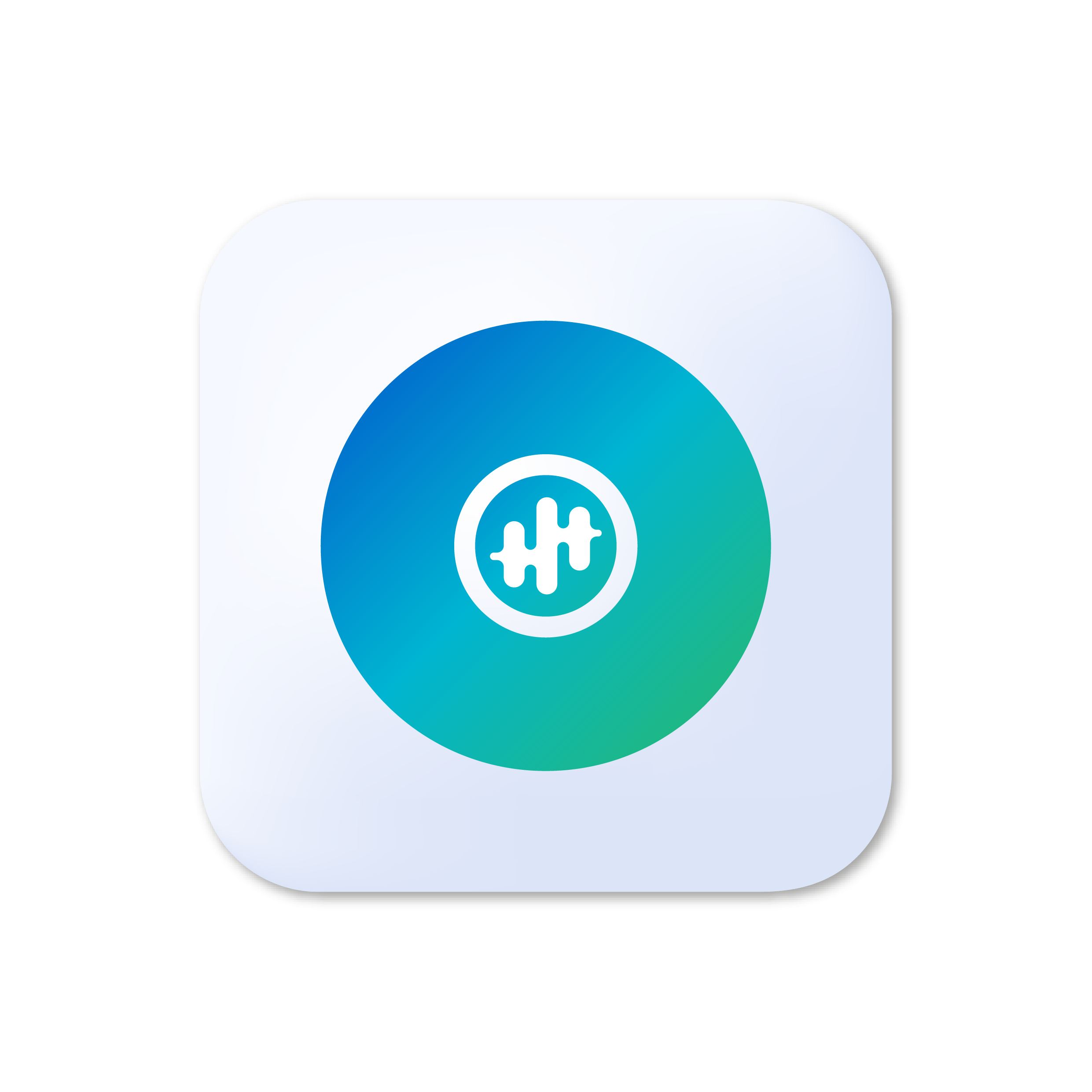 BandConvert
BandConvert
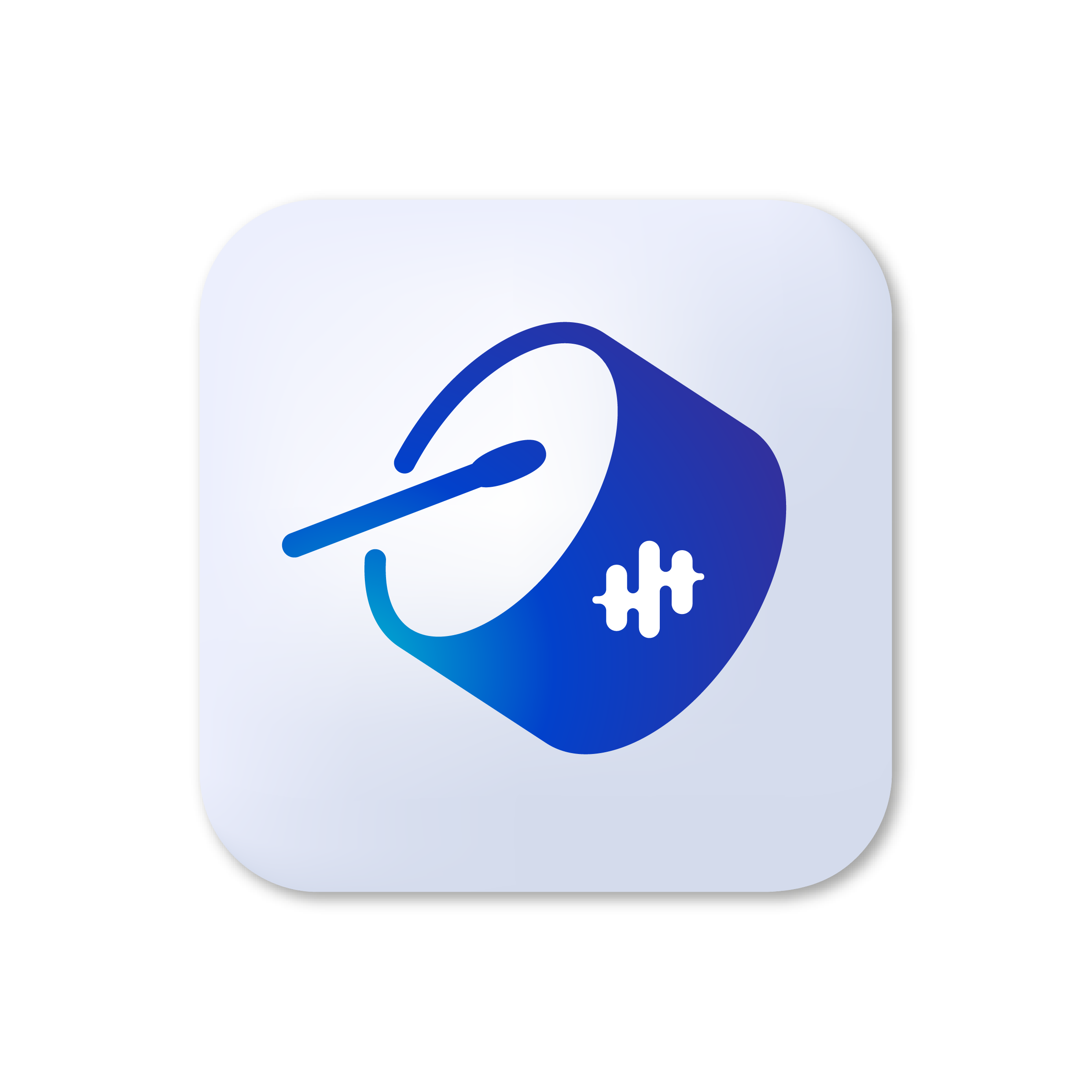 DrumConvert
DrumConvert
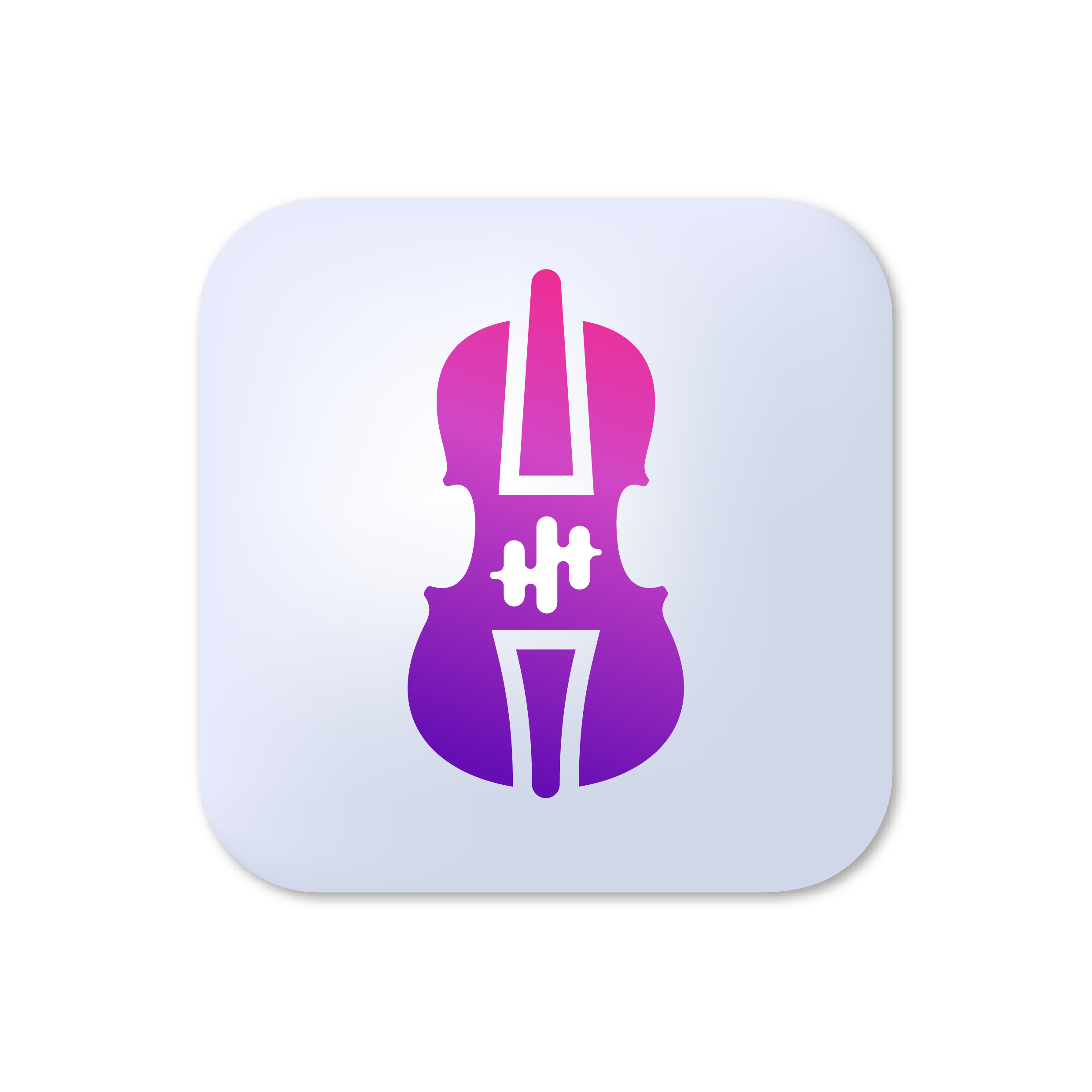 ViolinConvert
ViolinConvert
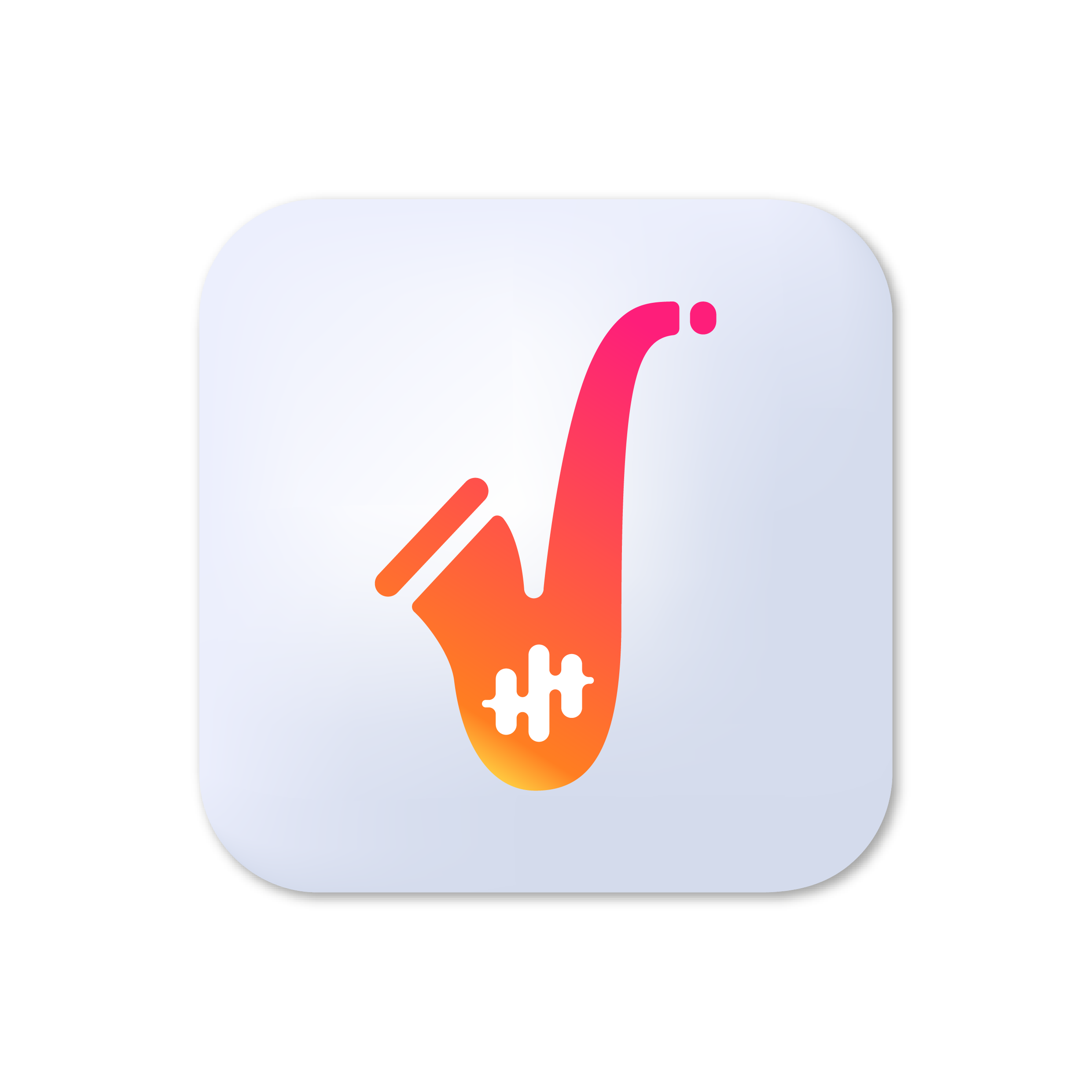 SaxConvert
SaxConvert
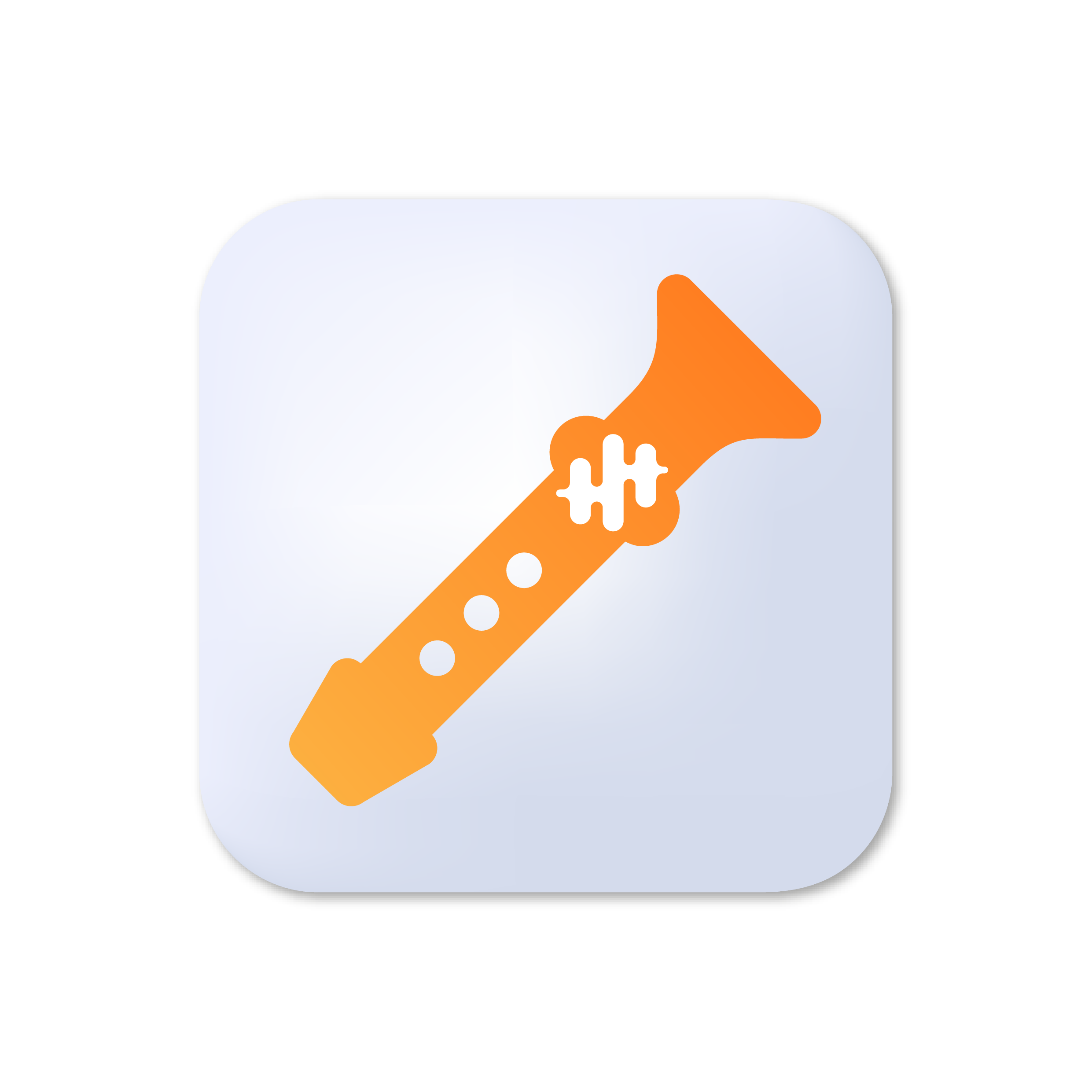 FluteConvert
FluteConvert
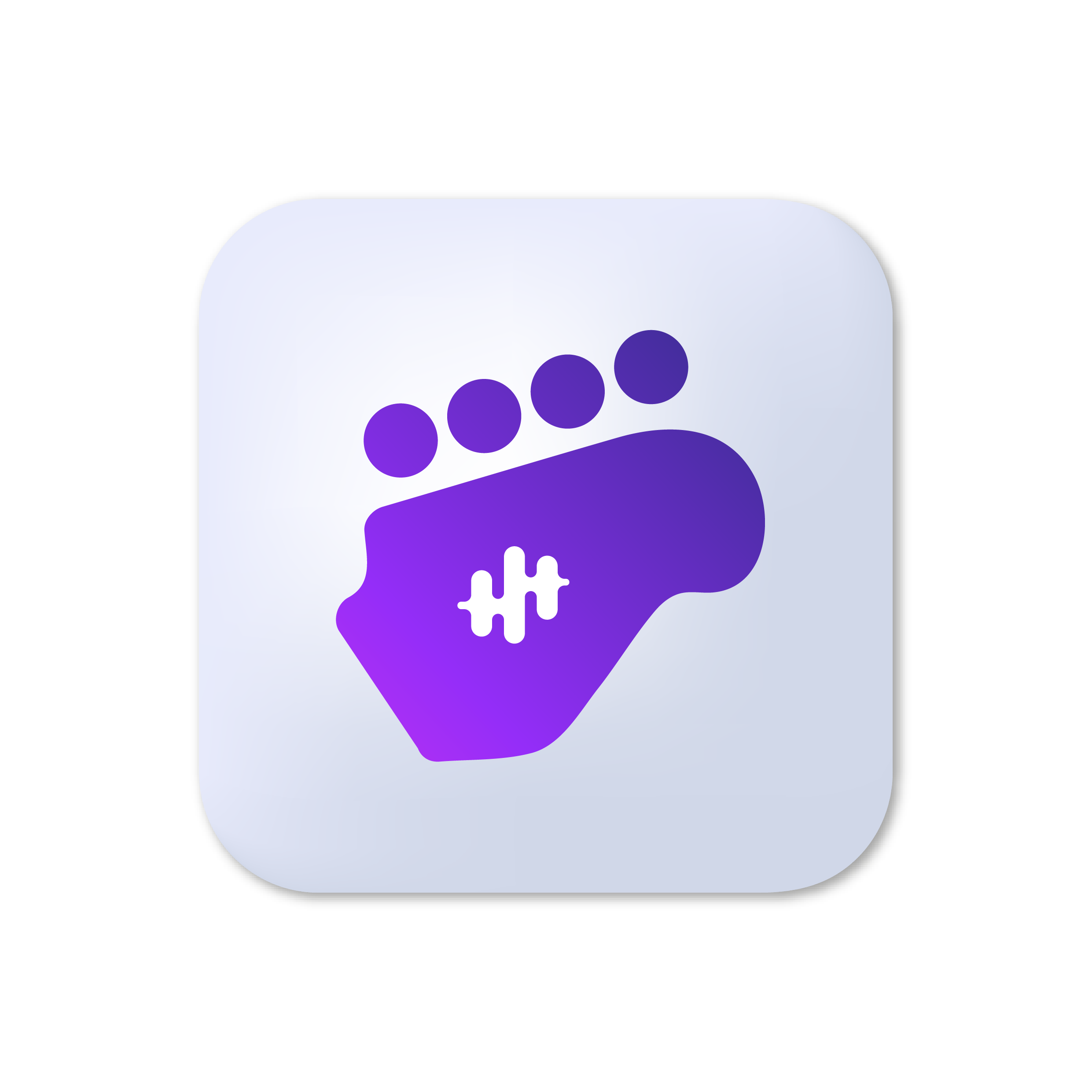 BassConvert
BassConvert
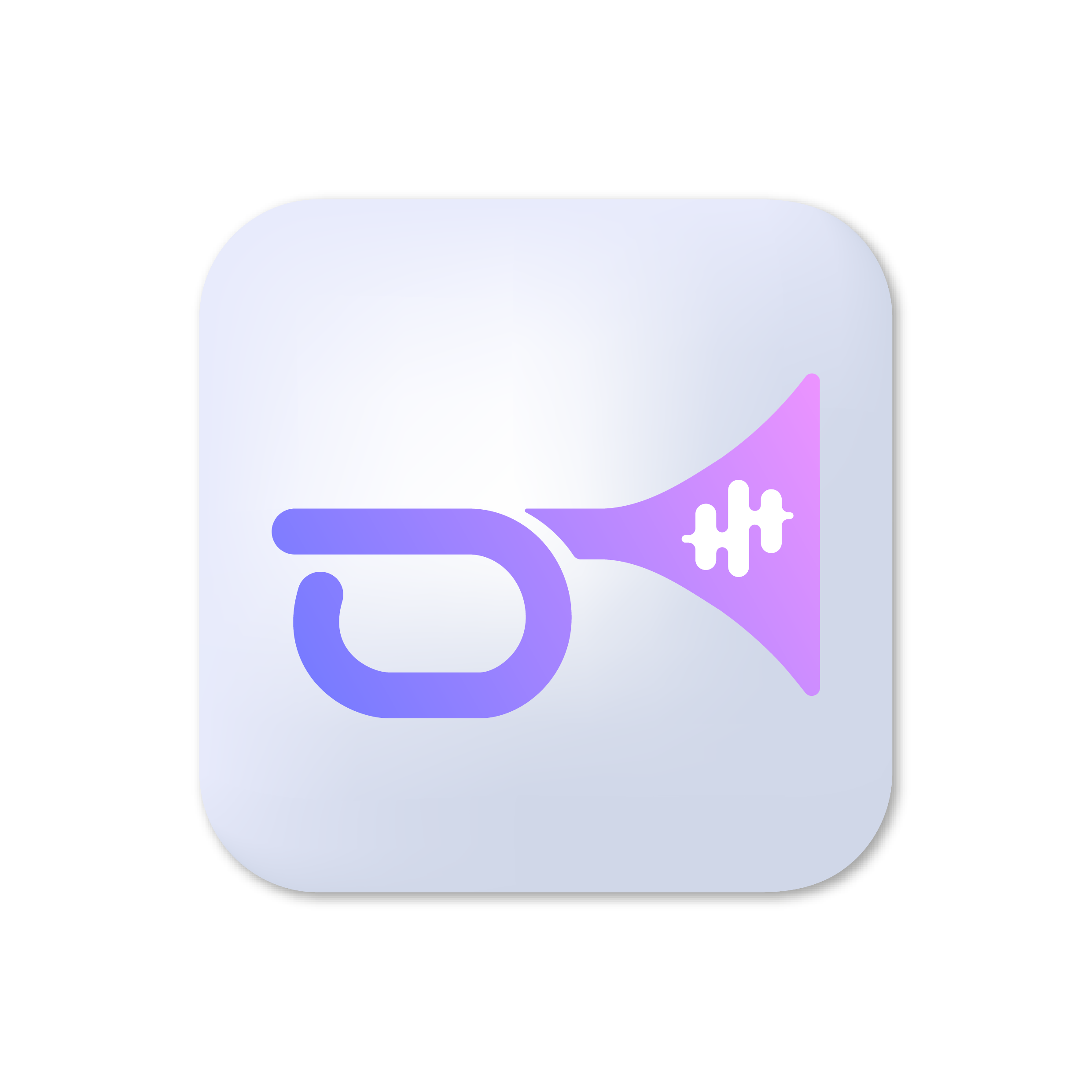 TrumpetConvert
TrumpetConvert
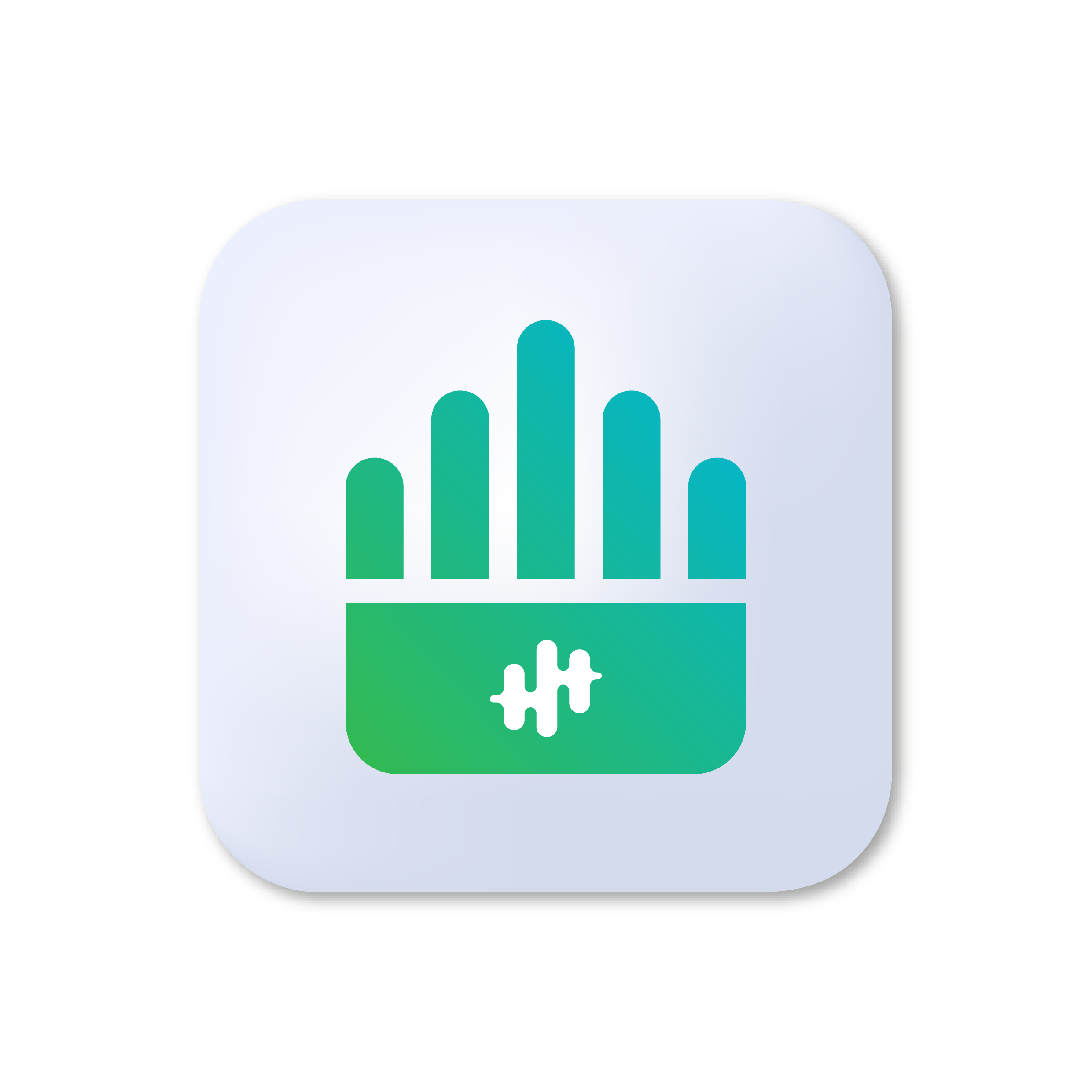 OrganConvert
OrganConvert
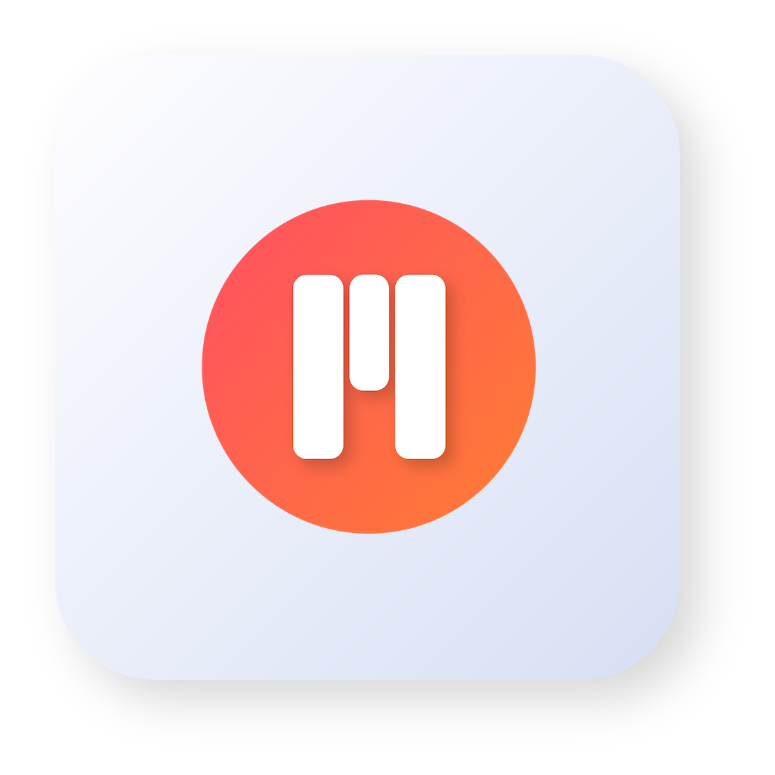 PianoGo
PianoGo


